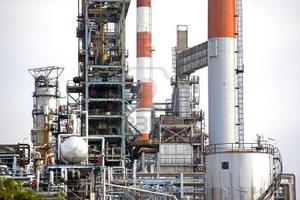Chemical plant securitySenate committee passes chemical security bill
This week, the Senate Committee on Homeland Security and Governmental Affairs voted 8-2 for Senator Susan Collins’s bill (S. 473) to renew the Chemical Facility Anti-Terrorism Standards (CFATS), which is designed to regulate the chemical industry to ensure that they are keeping their facilities safe from terrorist attack; a similar bill has already been approved by a House committee; so far DHS has reviewed 39,000 chemical facilities in the United States and has determined that more than 4,755 are high risk and need to develop detailed security plans

Critics argue the Senate measure isn't strong enough // Source: 123rf.com
A Senate committee has passed a three year extension on the bill regulating the chemical industry.
This week, the Senate Committee on Homeland Security and Governmental Affairs voted 8-2 for Senator Susan Collins’s bill, S. 473, to renew the Chemical Facility Anti-Terrorism Standards (CFATS), which is designed to regulate the chemical industry to ensure that they are keeping their facilities safe from terrorist attack. A similar bill has already been approved by a House committee and the chemical industry and regulators are eager to see Congress pass the bill to provide stability in the regulatory marketplace. The bill was originally approved in 2006 and is set to expire this year.
Senator Collins said, “This landmark law has been in place for over four years and security at our nation’s chemical facilities is much stronger today as a result.”
Critics of the bill say CFATS does not go far enough and gives the chemical industry, which heavily supports the bill, too much leeway. In particular critics say the bill does not require facilities to consider using safer chemical processes and the fact that it exempts water and wastewater plants.
Representative Dan Lungren (R – California), the sponsor of the House version of the bill, admitted that CFATS was not perfect, but that it needed to be reauthorized.
“Although implementation has been slower than Congress wanted, CFATS is working,” he said. “It is building a foundation of security in the chemical industry, which will protect our citizens and our economy from future terror attacks. Is it perfect? No. Are there gaps? Probably. But our priority should be to extend this working chemical security program and not allow the perfect plan to be the enemy of the good.”
According to Lungren, so far DHS has reviewed 39,000 chemical facilities in the United States and has determined that more than 4,755 are high risk and need to develop detailed security plans.
